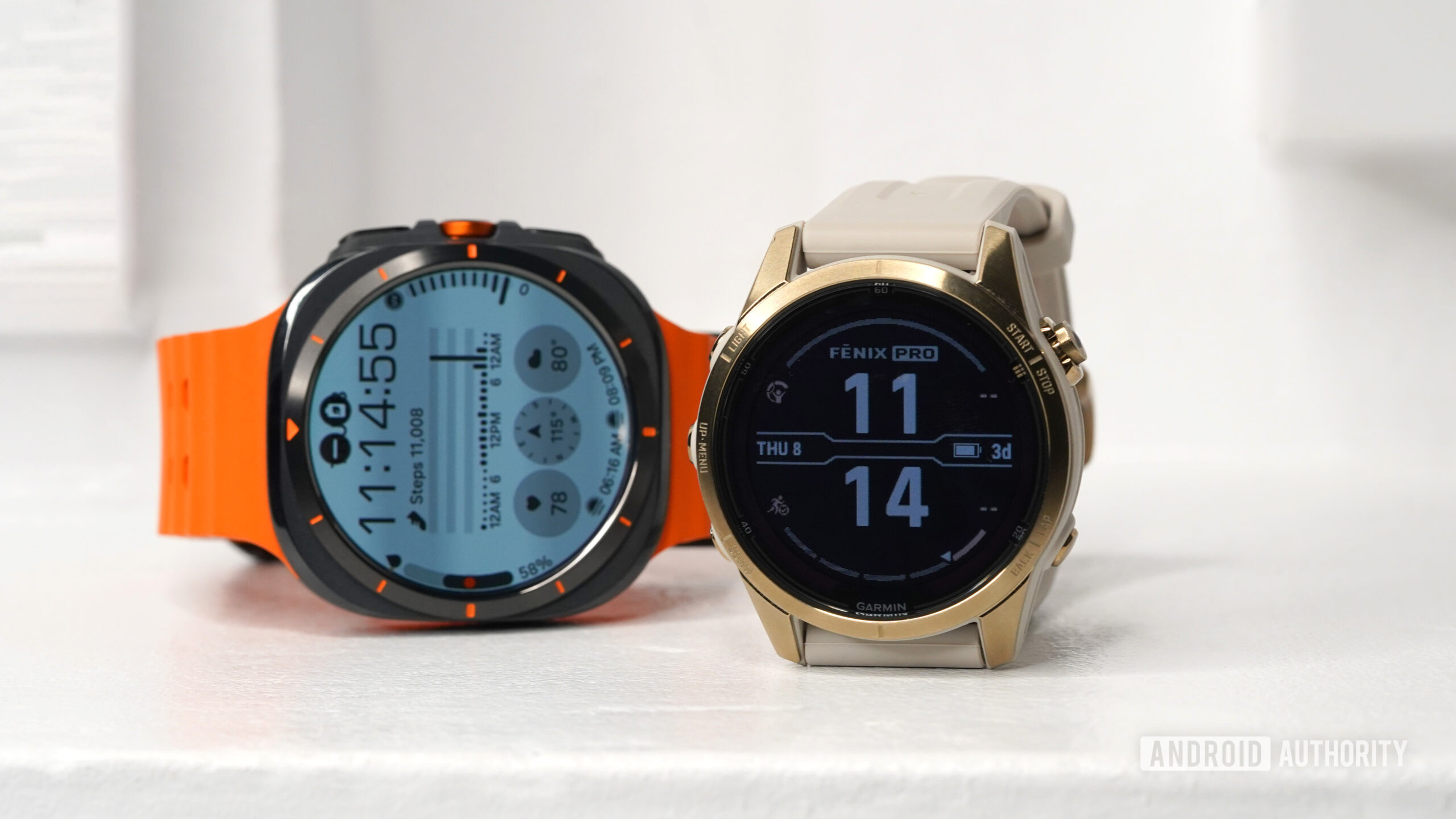
Kaitlyn Cimino / Android Authority
Smartwatches and fitness trackers are adding more capabilities to users’ wrists than ever, including powerful features related to health and fitness. Most recently, companies have been moving towards holistic wellness tracking, introducing tools that offer broader analysis and actionable insights. Though Garmin has been on that train for some time with its well-known Body Battery feature, Samsung recently joined the party by introducing Energy Score. Find out how these two metrics compare and which is more effective.
Garmin’s Body Battery
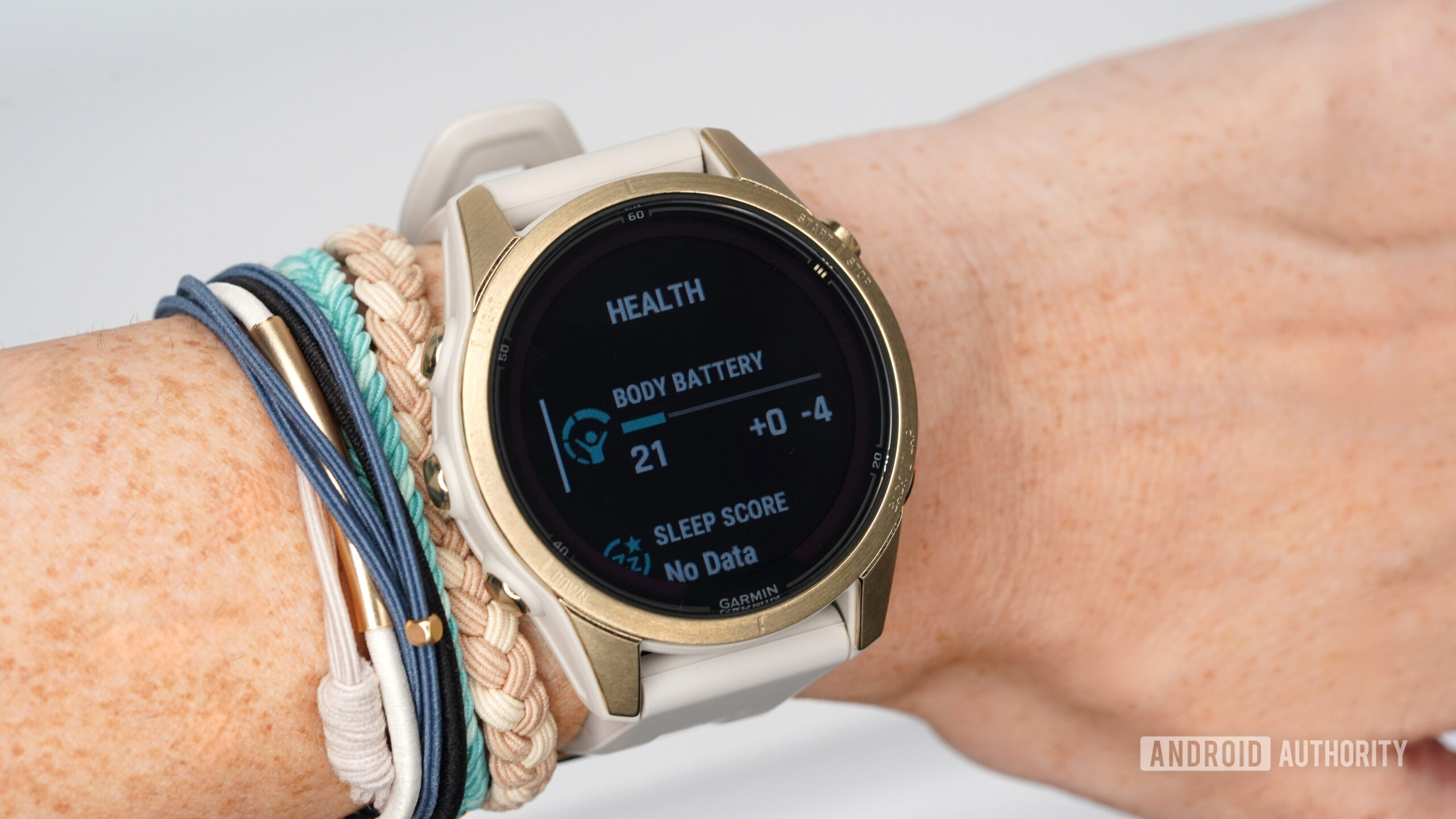
Kaitlyn Cimino / Android Authority
Body Battery is easily one of Garmin’s most popular wellness metrics. It originally debuted in 2018 on the Vivosmart 4 and has since made its way to all of Garmin’s top devices. The feature helps users monitor their energy by tracking the impacts of their activity, stress, rest, and sleep as tracked by their Garmin device. By offering insights in the form of a personalized, digestible score, Garmin enables users to make healthier decisions regarding their own energy resources.
Most importantly, Body Battery feedback is dynamic. The tool continuously leverages metrics, including heart rate, heart rate variability (HRV), and activity to identify and analyze a user’s physiological state and energy levels. At the start of the day, users typically see their highest Body Battery score thanks to the restorative power of sleep. Throughout the day, stress and activity drain your Body’s Battery, with rigorous activity having a larger impact than regular daily activity such as walking. Conversely, naps and rest can restore your battery and raise your score.
Throughout my reviews of numerous Garmin devices, Body Battery has proven a highly reliable and useful metric. It offers a comprehensive view of your physical state and helpfully influences how you approach your day and manage your rest. Notably, in terms of high-level training readiness, Garmin also offers a more dedicated feature creatively called Training Readiness, which works similarly to Body Battery but aims to help users determine what workouts they should take on. However, Body Battery is more broadly available across the Garmin stable and appeals to both athletes and more casual users alike.
Body Battery is one of Garmin's most popular tools, for good reason.
As mentioned, I’ve been impressed with the accuracy of my Body Battery scores. The value often matches my perceived energy levels and fluctuates in a logical manner compared to my activity and rest. This is most likely thanks to Garmin’s highly accurate heart rate monitoring and sleep tracking platform, in addition to an effective algorithm. I also appreciate the way the data is presented both as a score on-device and alongside additional insights and details in the Garmin app.
Samsung’s Energy Score
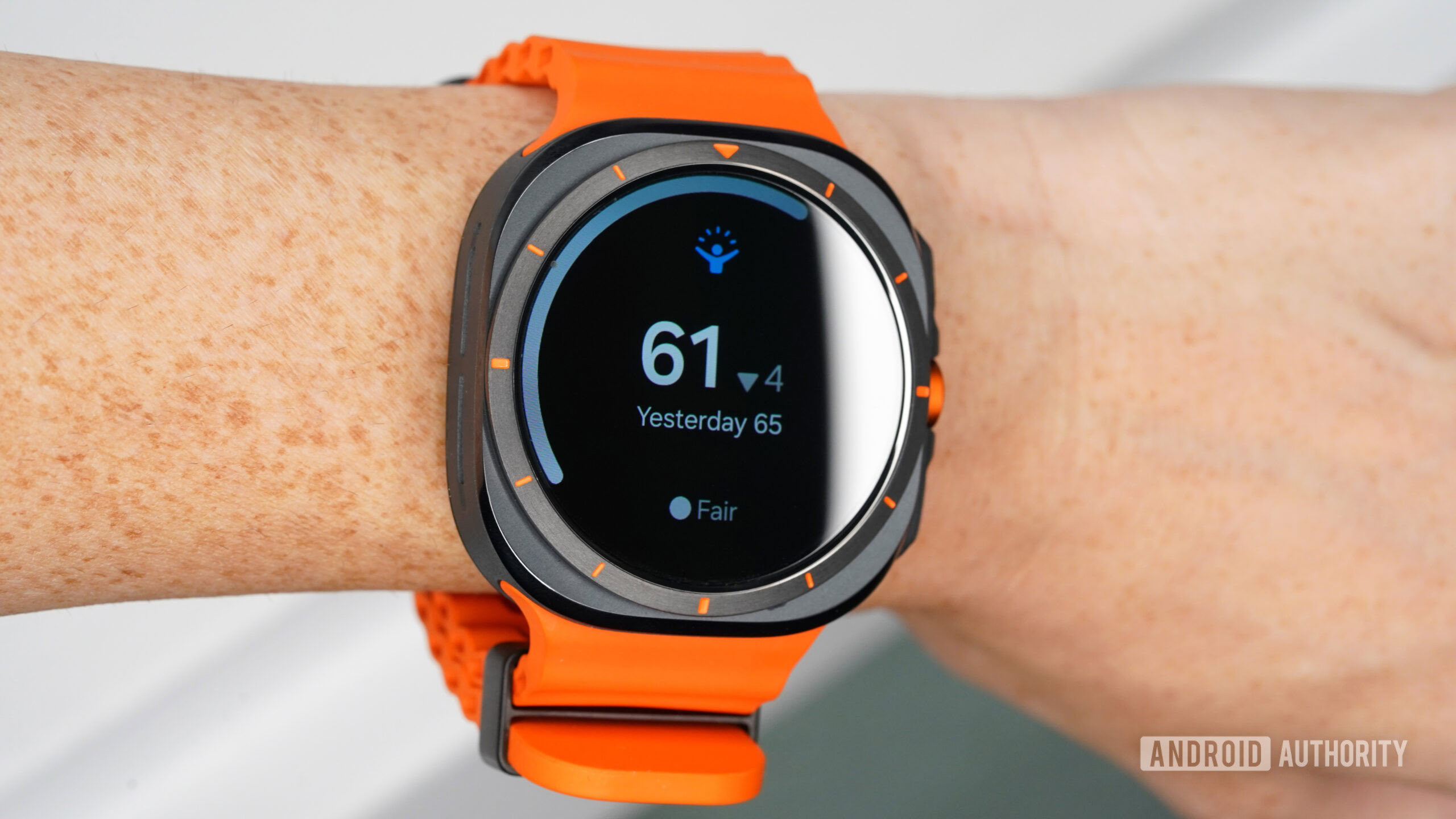
Kaitlyn Cimino / Android Authority
Jumping on the holistic wellness train, Samsung introduced its own version of Body Battery on its latest smartwatches. Samsung’s Energy Score leverages Galaxy AI to combine and analyze a series of relevant metrics, including sleep time average, sleep time consistency, sleep and wake time consistency, sleep timing, sleeping heart rate, heart rate variability, and previous day activity. Like Garmin, Samsung aims to provide users with a better understanding of their energy levels and the impacts of rest and activity.
On the Galaxy Watch 7 and Galaxy Watch Ultra, you can access your Energy Score from the wrist as a swipeable tile. Within the Samsung Health app, you can also dig deeper and review details such as current heart rate, steps, stress, and sleep stats from the previous night. You’ll find charts for skin temperature, respiration rate, and heart rate variability, as well as an overarching synopsis with a call to action, such as “Stress under control,” as shown below.
Newly minted just this year, Energy Score is a much younger feature than Body Battery, and it shows. During my Galaxy Watch Ultra review, my score barely fluctuated despite varying levels of activity and sleep throughout the week. I’m hopeful that Samsung will continue to fine-tune its algorithm and polish up the tool going forward, but there are also other factors to consider.
Energy Score has a lot of potential, but still needs refinement from Samsung.
Sleep tracking remains a weakness of the Samsung lineup. My data is rarely as consistent as I would expect from an established wearable and often doesn’t align with more trusted trackers like the Oura Ring or Withings ScanWatches. In order for me to truly trust my Energy Score, I would need to see improved sleep tracking as the data is directly related.
Body Battery vs Energy Score: The verdict
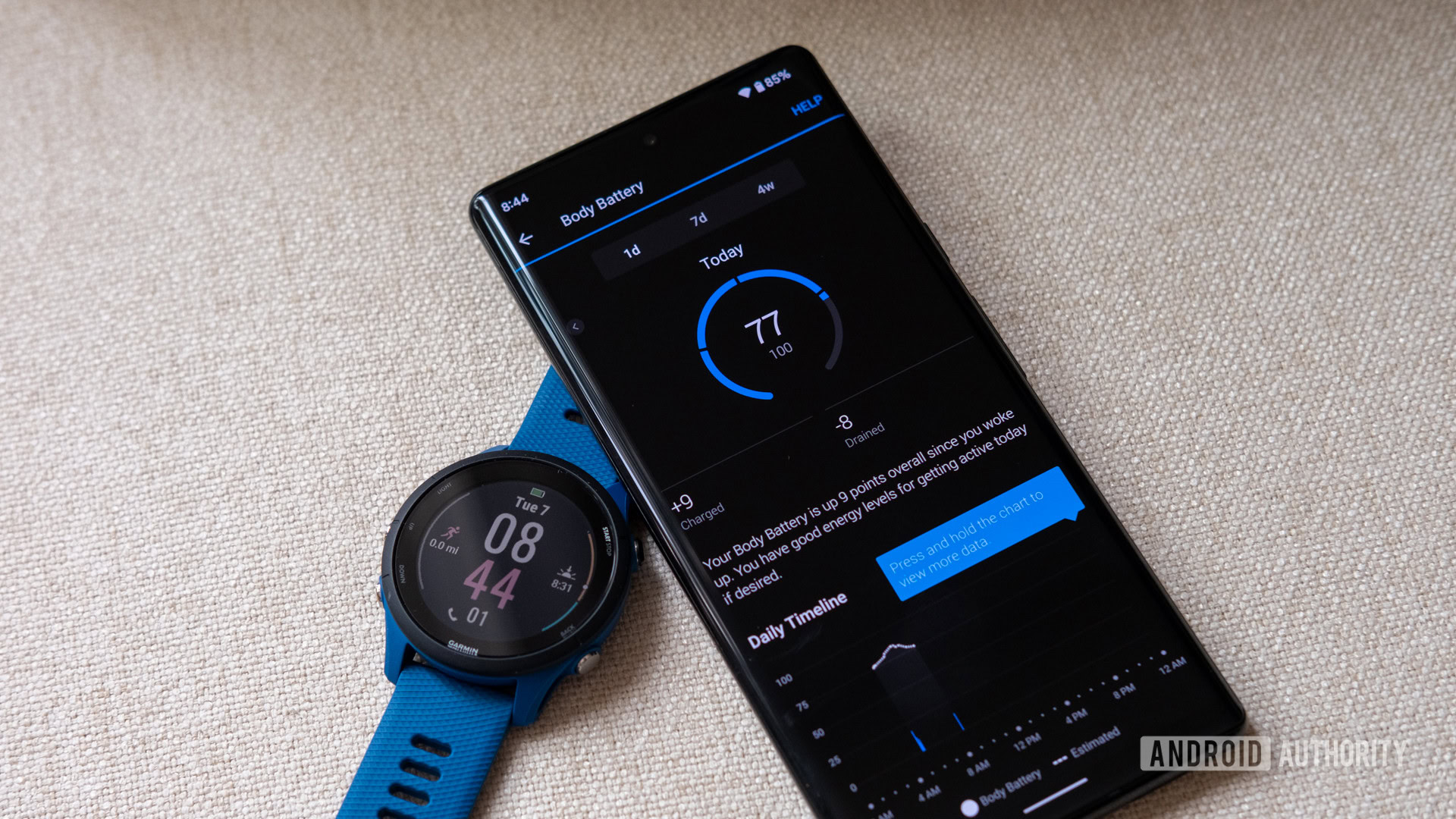
Ryan Haines / Android Authority
Both Body Battery and Energy Score take the right approach to wellness tracking and provide users with an insightful perspective on energy, both physical and mental. The tools can help you make smarter choices for a better balance each day. However, Body Battery is a much more established feature from a trusted brand that consistently records accurate stats and data for serious athletes. Comparatively, Energy Score feels underbaked. Though Samsung has the best intentions, it needs to refine the tool further before it can truly compete.
With more consistent accuracy, Garmin's Body Battery is the more powerful tool.
That said, neither feature alone is worth switching ecosystems. If you are a Samsung Galaxy Watch enthusiast, there are plenty of other reasons to love the device you have in hand and wait for Energy Score to improve over time. If you’re sporting a Garmin Epix Pro or something else from the company’s stable, you’re certainly all set as well.

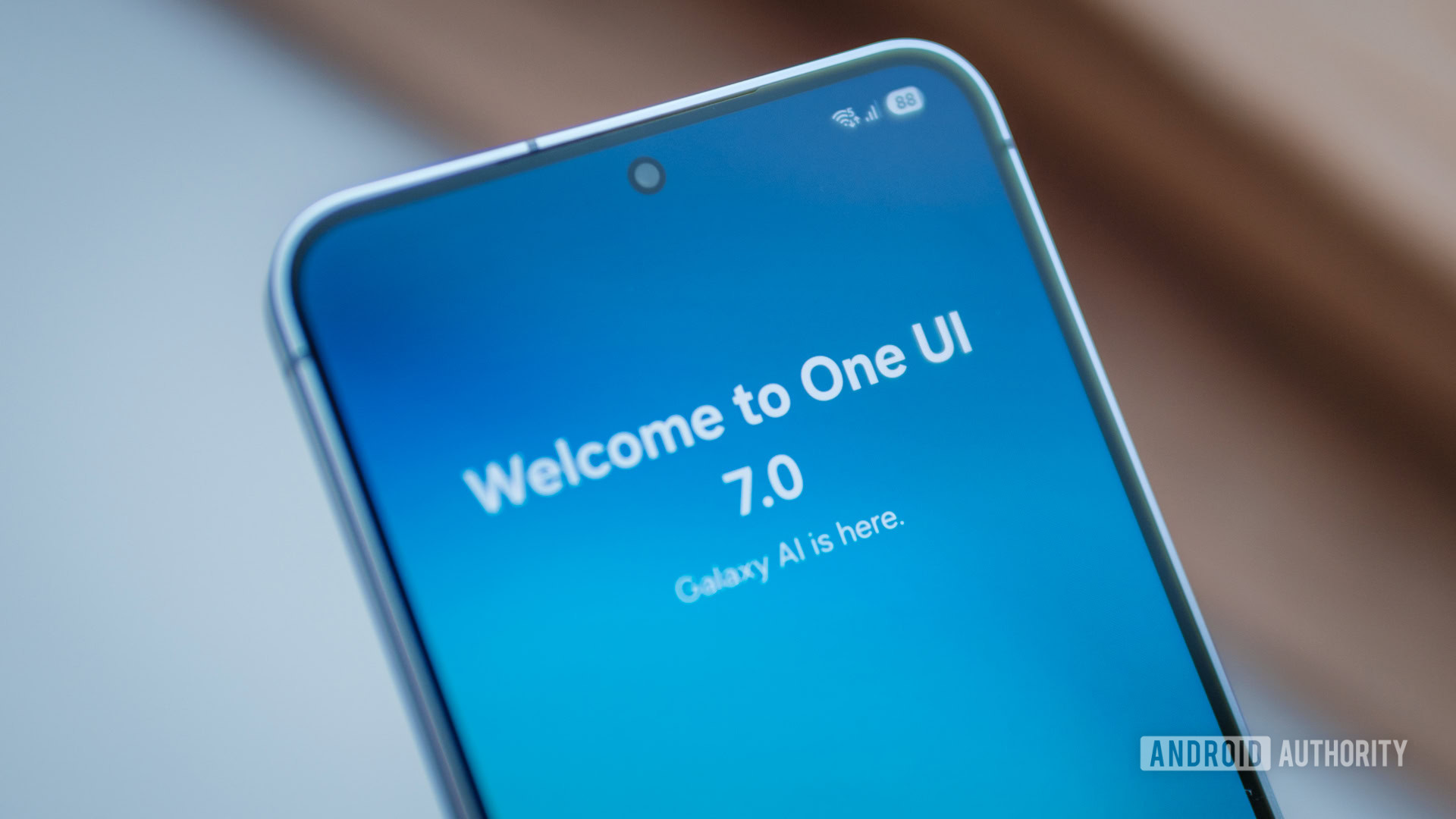





 English (US) ·
English (US) ·